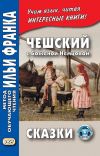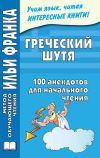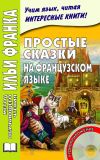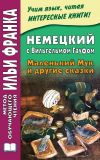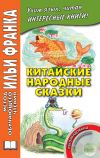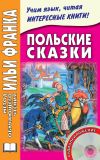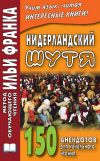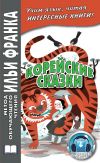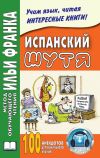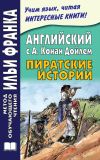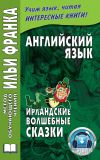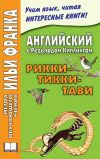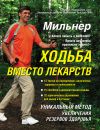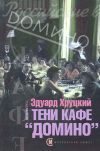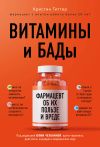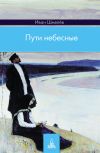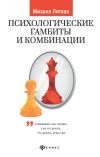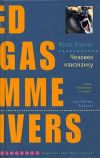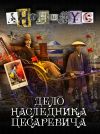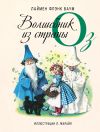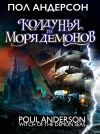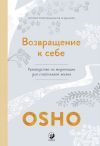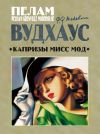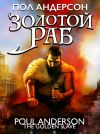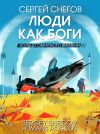Читать книгу "Английские волшебные сказки / English Fairy Tales"
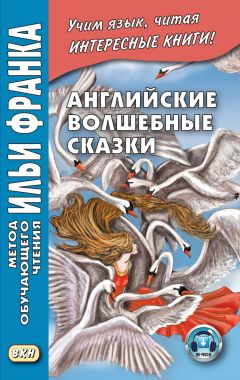
Автор книги: Джозеф Джейкобс
Жанр: Иностранные языки, Наука и Образование
Возрастные ограничения: 12+
сообщить о неприемлемом содержимом
All happened as it did before (все произошло /точно так же/, как это случилось и прежде). In came the ogre as he did before (внутрь пришел людоед, как он сделал раньше), and said: ‘Fee-fi-fo-fum,’ and had his breakfast off three broiled oxen (и съел свой завтрак из трех жареных волов; ox – вол). Then he said (затем он сказал): ‘Wife, bring me the hen that lays the golden eggs (жена, принеси мне курицу, которая несет: «кладет» золотые яйца).’ So she brought it (так что она принесла ее), and the ogre said (и людоед сказал): ‘Lay (неси: «клади»),’ and it laid an egg all of gold (и она снесла яйцо, все/целиком из золота). And then the ogre began to nod his head (и затем людоед начал клевать носом: «кивать своей головой»), and to snore till the house shook (и храпеть так, что дом трясся; to shake – трясти/сь/).
scarcely [‘skeəslɪ], slowly [‘slǝʋlɪ]
Well, the big tall woman was so curious that she took him in and gave him something to eat. But he had scarcely begun munching it as slowly as he could when thump! thump! they heard the giant’s footstep, and his wife hid Jack away in the oven.
All happened as it did before. In came the ogre as he did before, said: ‘Fee-fi-fo-fum,’ and had his breakfast of three broiled oxen. Then he said: ‘Wife, bring me the hen that lays the golden eggs.’ So she brought it, and the ogre said: ‘Lay,’ and it laid an egg all of gold. And then the ogre began to nod his head, and to snore till the house shook.
Then Jack crept out of the oven on tiptoe (тогда Джек выбрался из печи на цыпочках) and caught hold of the golden hen (и схватил золотую курицу; to catch – ловить; hold – ухват, захват), and was off before you could say ‘Jack Robinson’ (и был таков: «прочь» прежде, чем ты мог бы сказать «Джек Робинсон»). But this time the hen gave a cackle which woke the ogre (но на этот раз курица издала кудахтанье, которое разбудило людоеда), and just as Jack got out of the house (и как раз, когда Джек выбирался из дома) he heard him calling (он услышал его зовущего = как тот зовет):
‘Wife, wife (жена, жена), what have you done with my golden hen (что ты сделала с моей золотой курицей)?’ And the wife said (и жена сказала): ‘Why (в чем дело: «почему»), my dear (мой дорогой)?’
But that was all Jack heard (но это было все, что Джек услышал), for he rushed off to the beanstalk (ибо он помчался прочь к бобовому стеблю) and climbed down like a house on fire (и слез вниз очень быстро: «как дом на огне = как горящий дом»). And when he got home (и когда он добрался домой) he showed his mother the wonderful hen (он показал своей матери чудесную курицу), and said ‘Lay’ to it (и сказал «неси» ей); and it laid a golden egg every time he said ‘Lay’ (и она сносила золотое яйцо каждый раз, как он говорил «неси»).
cackle [‘kæk(ǝ)l], wonderful [‘wʌndəf(ə)l]
Then Jack crept out of the oven on tiptoe and caught hold of the golden hen, and was off before you could say ‘Jack Robinson’. But this time the hen gave a cackle which woke the ogre, and just as Jack got out of the house he heard him calling:
‘Wife, wife, what have you done with my golden hen?’ And the wife said: ‘Why, my dear?’
But that was all Jack heard, for he rushed off to the beanstalk and climbed down like a house on fire. And when he got home he showed his mother the wonderful hen, and said ‘Lay’ to it; and it laid a golden egg every time he said ‘Lay’.
Well, Jack was not content (Джек не был доволен), and it wasn’t long before (и вскоре: «это не было долго прежде чем») he determined to have another try at his luck (он решился еще раз испытать: «иметь еще одну попытку» свое счастье) up there at the top of the beanstalk (там, на верху бобового стебля). So one fine morning (так что одним прекрасным утром), he rose up early (он встал рано), and got to the beanstalk (и забрался на бобовый стебель), and he climbed and he climbed and he climbed and he climbed (и он лез…) till he got to the top (пока не добрался до верха). But this time (но на этот раз) he knew better than to go straight to the ogre’s house (он знал лучше, чем идти прямо к дому людоеда = он был умнее и не пошел прямо к дому людоеда). And when he got near it (и когда он оказался близ него), he waited behind a bush (он ждал позади куста) till he saw the ogre’s wife come out (пока не увидел, как жена людоеда выходит) with a pail to get some water (с ведром, чтобы раздобыть немного воды = за водой), and then he crept into the house (и тогда он пробрался в дом; to creep – ползти; красться) and got into the copper (и забрался в медный котел). He hadn’t been there long (он не был там долго) when he heard thump (когда он услышал бух)! thump! thump! as before (как раньше), and in came the ogre and his wife (и внутрь вошли людоед и его жена).
content [kən’tent], determine [dɪ’tɜ:mɪn]
Well, Jack was not content, and it wasn’t long before he determined to have another try at his luck up there at the top of the beanstalk. So one fine morning, he rose up early, and got to the beanstalk, and he climbed and he climbed and he climbed and he climbed till he got to the top. But this time he knew better than to go straight to the ogre’s house. And when he got near it, he waited behind a bush till he saw the ogre’s wife come out with a pail to get some water, and then he crept into the house and got into the copper. He hadn’t been there long when he heard thump! thump! thump! as before, and in came the ogre and his wife.
‘Fee-fi-fo-fum, I smell the blood of an Englishman (я чую кровь англичанина),’ cried out the ogre (воскликнул людоед). ‘I smell him, wife, I smell him (я чую его, жена, я чую его).’
‘Do you (в самом деле чуешь), my dearie (мой дорогой)?’ says the ogre’s wife (говорит жена людоеда). ‘Then, if it’s that little rogue that stole your gold (тогда, если это тот маленький плут, который украл твое золото) and the hen that laid the golden eggs (и курицу, которая несла золотые яйца) he’s sure to have got into the oven (он наверняка забрался в печь).’ And they both rushed to the oven (и они оба бросились к печи). But Jack wasn’t there, luckily (но Джек не был там, к счастью), and the ogre’s wife said (и жена людоеда сказала): ‘There you are again with your fee-fi-fo-fum (ну вот ты опять с твоим «фи-фай-фо-фам»). Why (как же: «почему»), of course (конечно), it’s the boy you caught last night (это тот мальчик, которого ты поймал прошлой: «последней» ночью) that I’ve just broiled for your breakfast (которого я только что изжарила для твоего завтрака). How forgetful I am (какая я забывчивая), and how careless you are (и какой ты беспечный) not to know the difference (не знать разницу) between live and dead (между живым и мертвым) after all these years (после всех этих лет = после стольких лет).’
blood [blʌd], rogue [rəʋɡ], careless [‘keələs]
‘Fee-fi-fo-fum, I smell the blood of an Englishman,’ cried out the ogre. ‘I smell him, wife, I smell him.’
‘Do you, my dearie?’ says the ogre’s wife. ‘Then, if it’s that little rogue that stole your gold and the hen that laid the golden eggs he’s sure to have got into the oven.’ And they both rushed to the oven. But Jack wasn’t there, luckily, and the ogre’ s wife said: ‘There you are again with your fee-fi-fo-fum. Why, of course, it’s the boy you caught last night that I’ve just broiled for your breakfast. How forgetful I am, and how careless you are not to know the difference between live and dead after all these years.’
So the ogre sat down to the breakfast and ate it (так что людоед сел за завтрак и съел его), but every now and then (но время от времени: «каждый сейчас и затем») he would mutter (он бормотал): ‘Well, I could have sworn (я мог бы поклясться; to swear – клясться)’ —and he’d get up and search the larder (и он вставал и обыскивал кладовку) and the cupboards and everything (и шкафы, и все), only, luckily, he didn’t think of the copper (только, к счастью, он не подумал о медном котле).
After breakfast was over (после того как завтрак был окончен), the ogre called out (людоед позвал): ‘Wife, wife, bring me my golden harp (жена, жена, принеси мне мою золотую арфу).’ So she brought it (так что она принесла ее) and put it on the table before him (и положила ее на стол перед ним). Then he said (тогда он сказал): ‘Sing (пой)!’ and the golden harp sang most beautifully (и золотая арфа пела прекраснейше: «наиболее прекрасно»). And it went on singing (и она продолжала петь; to go on – продолжать: «идти дальше») till the ogre fell asleep (пока людоед не заснул: «упал спящим»), and commenced to snore like thunder (и начал храпеть, как гром).
Then Jack lifted up the copper-lid very quietly (тогда Джек приподнял вверх крышку котла очень тихо) and got down like a mouse (и спустился вниз, как мышь) and crept on hands and knees (и полз на четвереньках: «на руках и коленях») till he came to the table (пока он не добрался до стола), when up he crawled (когда = и тут вверх он вполз), caught hold of the golden harp (схватил золотую арфу) and dashed with it towards the door (и бросился с ней к двери). But the harp called out quite loud (но арфа позвала совсем громко): ‘Master (хозяин)! Master!’ and the ogre woke up (и людоед проснулся) just in time to see Jack (как раз вовремя, чтобы увидеть Джека) running off with his harp (убегающего прочь с его арфой).
search [sɜ:tʃ], commence [kə’mens], thunder [‘θʌndǝ]
So the ogre sat down to the breakfast and ate it, but every now and then he would mutter: ‘Well, I could have sworn —’ and he’d get up and search the larder and the cupboards and everything, only, luckily, he didn’t think of the copper.
After breakfast was over, the ogre called out: ‘Wife, wife, bring me my golden harp.’ So she brought it and put it on the table before him. Then he said: ‘Sing!’ and the golden harp sang most beautifully. And it went on singing till the ogre fell asleep, and commenced to snore like thunder.
Then Jack lifted up the copper-lid very quietly and got down like a mouse and crept on hands and knees till he came to the table, when up he crawled, caught hold of the golden harp and dashed with it towards the door. But the harp called out quite loud: ‘Master! Master!’ and the ogre woke up just in time to see Jack running off with his harp.
Jack ran as fast as he could (Джек бежал так быстро, как он мог), and the ogre came rushing after (и людоед бежал за ним), and would soon have caught him (и скоро бы поймал его), only Jack had a start (только Джек имел преимущество) and dodged him a bit (и увиливал от него немного) and knew where he was going (и знал, куда он направлялся). When he got to the beanstalk (когда он добрался до бобового стебля) the ogre was not more than twenty yards away (людоед был не больше, чем в двадцати ярдах прочь) when suddenly he saw Jack disappear (когда внезапно он увидел, как Джек исчезает), and when he came to the end of the road (и когда он добрался до конца дороги) he saw Jack underneath (он увидел Джека внизу) climbing down for dear life (слезающего вниз изо всех сил: «ради дорогой жизни»). Well, the ogre didn’t like trusting himself to such a ladder (людоеду не понравилось доверять себя такой лестнице = людоед не рискнул лезть по такой лестнице), and he stood and waited (и он стоял и ждал), so Jack got another start (так что Джек получил еще одно преимущество). But just then the harp cried out (но прямо тогда арфа воскликнула): ‘Master (хозяин)! Master!’ and the ogre swung himself down (и людоед повис: «подвесил себя вниз»; to swing – качаться, повиснуть) on to the beanstalk (на бобовом стебле), which shook with his weight (который раскачивался от его веса). Down climbs Jack (вниз лезет Джек), and after him climbed the ogre (а за ним лез людоед). By this time (к этому времени) Jack had climbed down and climbed down and climbed down (Джек лез вниз…) till he was very nearly home (пока он не был очень близко к дому). So he called out (так что он позвал): ‘Mother (мать)! Mother! bring me an axe (принеси мне топор), bring me an axe.’ And his mother came rushing out (и его мать прибежала: «пришла несясь» наружу) with the axe in her hand (с топором в своей руке), but when she came to the beanstalk (но когда она добралась до бобового стебля) she stood stock still with fright (она остановилась как вкопанная от страха), for there she saw the ogre (ибо там она увидела людоеда) with his legs just through the clouds (с его ногами прямо через облака = ноги которого высовывались через облака).
suddenly [‘sʌdənlɪ], disappear [,dɪsǝ’pɪǝ], underneath [,ʌndǝ’ni:θ], axe [æks]
Jack ran as fast as he could, and the ogre came rushing after, and would soon have caught him, only Jack had a start and dodged him a bit and knew where he was going. When he got to the beanstalk the ogre was not more than twenty yards away when suddenly he saw Jack disappear like, and when he came to the end of the road he saw Jack underneath climbing down for dear life. Well, the ogre didn’t like trusting himself to such a ladder, and he stood and waited, so Jack got another start. But just then the harp cried out: ‘Master! Master!’ and the ogre swung himself down on to the beanstalk, which shook with his weight. Down climbs Jack, and after him climbed the ogre. By this time Jack had climbed down and climbed down and climbed down till he was very nearly home. So he called out: ‘Mother! Mother! bring me an axe, bring me an axe.’ And his mother came rushing out with the axe in her hand, but when she came to the beanstalk she stood stock still with fright, for there she saw the ogre with his legs just through the clouds.
But Jack jumped down (но Джек прыгнул вниз) and got hold of the axe (и взял топор) and gave a chop at the beanstalk (и нанес: «дал» удар по бобовому стеблю) which cut it half in two (который /удар/ почти разрубил его пополам: «разрубил на половину на две части»). The ogre felt the beanstalk shake and quiver (людоед почувствовал, что бобовый стебель трясется и дрожит), so he stopped to see what was the matter (так что он остановился посмотреть в чем: «что» было дело). Then Jack gave another chop with the axe (тогда Джек нанес еще один удар топором), and the beanstalk was cut in two (и бобовый стебель был разрублен надвое) and began to topple over (и начал опрокидываться). Then the ogre fell down (тогда людоед упал вниз) and broke his crown (и разбил свою голову: «свой венец»), and the beanstalk came toppling after (и бобовый стебель свалился вслед за ним).
Then Jack showed his mother his golden harp (затем Джек показал своей матери свою золотую арфу), and what with showing that and selling the golden eggs (и из-за показывания этого и продавания = продажи золотых яиц), Jack and his mother became very rich (Джек и его мать стали очень богатыми), and he married a great princess (и он женился на великой принцессе), and they lived happy ever after (и они жили счастливые всю жизнь: «всегда потом»).
quiver [‘kwɪvə], crown [kraʋn]
But Jack jumped down and got hold of the axe and gave a chop at the beanstalk which cut it half in two. The ogre felt the beanstalk shake and quiver, so he stopped to see what was the matter. Then Jack gave another chop with the axe, and the beanstalk was cut in two and began to topple over. Then the ogre fell down and broke his crown, and the beanstalk came toppling after.
Then Jack showed his mother his golden harp, and what with showing that and selling the golden eggs, Jack and his mother became very rich, and he married a great princess, and they lived happy ever after.
The Three Sillies
(Три дурака)
Once upon a time (давным-давно: «однажды в один раз») there was a farmer and his wife (был крестьянин/фермер и его жена) who had one daughter (у которых была одна дочь), and she was courted by a gentleman (и за ней ухаживал джентльмен). Every evening he used to come and see her (каждый вечер он приходил повидать ее: «имел обыкновение приходить и видеть ее»), and stop to supper at the farmhouse (и останавливался, чтобы поужинать на ферме/в крестьянском доме), and the daughter used to be sent down into the cellar (и дочь посылали: «бывала послана» вниз в погреб) to draw the beer for supper (чтобы нацедить пива для ужина). So one evening (так в один вечер) she had gone down to draw the beer (она спустилась: «пошла вниз», чтобы нацедить пива), and she happened to look up (и ей случилось взглянуть вверх) at the ceiling (на потолок) while she was drawing (пока она цедила), and she saw (и она увидела) a mallet (молоток/пестик для ступки) stuck (застрявший; to stick – воткнуть, приклеиться, остаться) in one of the beams (в одной из балок).
daughter [‘dɔ:tə], court [kɔ:t], draw [drɔ:]
Once upon a time there was a farmer and his wife who had one daughter, and she was courted by a gentleman. Every evening he used to come and see her, and stop to supper at the farmhouse, and the daughter used to be sent down into the cellar to draw the beer for supper. So one evening she had gone down to draw the beer, and she happened to look up at the ceiling while she was drawing, and she saw a mallet stuck in one of the beams.
It must have been there (он должен был быть там) a long, long time (долгое-долгое время), but somehow or other (но каким-то образом: «так или иначе») she had never noticed it before (она никогда не замечала его раньше; to notice – замечать), and she began (и она начала; to begin – начинать) a-thinking (думать – разговорная или фольклорная форма: a-doing something). And she thought (и она подумала) it was very dangerous (/что/ это очень опасно) to have that mallet there (держать: «иметь» этот молоток там), for she said to herself (потому что она сказала себе = подумала про себя): ‘Suppose (предположим) him and me was to be married (/что/ он и я: «его и меня /разг./» поженимся), and we was to have a son (и у нас родится сын: «иметь сына»), and he was to grow up to be a man (и он вырастет, чтобы быть мужчиной = и станет мужчиной), and come down into the cellar to draw the beer (и спустится в погреб нацедить пива), like as I’m doing now (прямо как я делаю сейчас), and the mallet was to fall on his head and kill him (и молоток упадет на его голову и убьет его), what a dreadful thing it would be (какая ужасная вещь это бы была)!’ And she put down the candle and the jug (и она поставила вниз свечу и кувшин), and sat herself down (и уселась) and began a-crying (и начала плакать).
dangerous [‘deɪnʤərəs], suppose [sə’pəʋz], cellar [‘selə]
It must have been there a long, long time, but somehow or other she had never noticed it before, and she began a-thinking. And she thought it was very dangerous to have that mallet there, for she said to herself: ‘Suppose him and me was to be married, and we was to have a son, and he was to grow up to be a man, and come down into the cellar to draw the beer, like as I’m doing now, and the mallet was to fall on his head and kill him, what a dreadful thing it would be!’ And she put down the candle and the jug, and sat herself down and began a-crying.
Well, they began to wonder upstairs (ну, они начали удивляться/интересоваться наверху: «вверх по лестнице») how it was that she was so long drawing the beer (как это было, что она так долго цедила пиво = отчего это она так долго цедит пиво), and her mother went down to see after her (и ее мать спустилась: «пошла вниз», чтобы посмотреть за ней = посмотреть, что с ней случилось), and she found her sitting on the settle crying (и она нашла ее сидящей на скамье и плачущей; to find – находить), and the beer running over the floor (и пиво текущим на пол: «бегущим по полу»). ‘Why, whatever is the matter (что такое/в чем дело: «почему, что-то есть дело»)?’ said her mother. ‘Oh, mother!’ says she, ‘look at that horrid mallet (посмотри на этот ужасный молоток)! Suppose we was to be married, and was to have a son, and he was to grow up, and was to come down to the cellar to draw the beer, and the mallet was to fall on his head and kill him, what a dreadful thing it would be!’
upstairs [‘ʌp’steəz], whatever [wɒt’evə], horrid [‘hɒrɪd], dreadful [‘dredfʋl]
Well, they began to wonder upstairs how it was that she was so long drawing the beer, and her mother went down to see after her, and she found her sitting on the settle crying, and the beer running over the floor. ‘Why, whatever is the matter?’ said her mother. ‘Oh, mother!’ says she, ‘look at that horrid mallet! Suppose we was to be married, and was to have a son, and he was to grow up, and was to come down to the cellar to draw the beer, and the mallet was to fall on his head and kill him, what a dreadful thing it would be!’
‘Dear, dear! what a dreadful thing it would be (Боже! Боже! какая ужасная вещь это была бы)!’ said the mother, and she sat down aside of the daughter and started a-crying, too (сказала мать, и она села вниз рядом с дочерью и начала плакать тоже). Then after a bit (затем, немного погодя; bit – кусочек; a bit – немного; after – после) the father began to wonder that they didn’t come back (отец начал удивляться, что они не вернулись: «не пришли назад»), and he went down into the cellar to look after them himself (и он спустился в погреб посмотреть за ними сам = пошел за ними сам), and there they two sat a-crying (и там они две сидели, плача), and the beer running all over the floor (и пиво текущее = текло при этом повсюду на пол). ‘Whatever is the matter (в чем дело)?’ says he. ‘Why (как же: «почему»),’ says the mother, ‘look at that horrid mallet (посмотри на этот ужасный молоток). Just suppose (просто предположи), if our daughter and her sweetheart was to be married (если наша дочь и ее возлюбленный поженятся), and was to have a son (и у них родится сын), and he was to grow up, and was to come down into the cellar to draw the beer, and the mallet was to fall on his head and kill him, what a dreadful thing it would be!’
‘Dear, dear, dear! so it would (Боже! Боже! Боже! так это было бы/действительно ужасной вещью/)!’ said the father (сказал отец), and he sat himself down aside of the other two, and started a-crying (и он уселся рядом с другими двумя и начал плакать).
mallet [‘mælɪt], sweetheart [‘swi:thɑ:t]
‘Dear, dear! what a dreadful thing it would be!’ said the mother, and she sat down aside of the daughter and started a-crying, too. Then after a bit the father began to wonder that they didn’t come back, and he went down into the cellar to look after them himself, and there they two sat a-crying, and the beer running all over the floor. ‘Whatever is the matter?’ says he. ‘Why,’ says the mother, ‘look at that horrid mallet. Just suppose, if our daughter and her sweetheart was to be married, and was to have a son, and he was to grow up, and was to come down into the cellar to draw the beer, and the mallet was to fall on his head and kill him, what a dreadful thing it would be!’
‘Dear, dear, dear! so it would!’ said the father, and he sat himself down aside of the other two, and started a-crying.
Now (вот: «теперь») the gentleman got tired (джентльмен устал: «сделался уставшим») of stopping up in the kitchen by himself (оставаться: «от оставания» наверху в кухне в одиночестве: «сам с собой»), and at last he went down into the cellar, too (и, наконец, он спустился в погреб тоже), to see what they were after (чтобы посмотреть, что они /там/ ищут); and there they three sat a-crying side by side (и вот они там трое сидели = сидят, плача, рядом: «бок о бок»), and the beer running all over the floor (и пиво /при этом/ течет на пол). And he ran straight and turned the tap (и он побежал немедленно: «прямо» и повернул кран; to run – бежать). Then he said (затем он сказал): ‘Whatever are you three doing (что это вы трое делаете), sitting there crying (сидя и плача), and letting the beer run all over the floor (и позволяя пиву литься на пол)?’
tired [‘taɪəd], kitchen [‘kɪʧɪn], straight [streɪt]
Now the gentleman got tired of stopping up in the kitchen by himself, and at last he went down into the cellar, too, to see what they were after; and there they three sat a-crying side by side, and the beer running all over the floor. And he ran straight and turned the tap. Then he said: ‘Whatever are you three doing, sitting there crying, and letting the beer run all over the floor?’
‘Oh!’ says the father, ‘look at that horrid mallet! Suppose you and our daughter was to be married, and was to have a son, and he was to grow up, and was to come down into the cellar to draw the beer, and the mallet was to fall on his head and kill him!’ And then they all started a-crying worse than before (и тогда они все начали плакать пуще прежнего: «хуже, чем раньше»). But the gentleman burst out a-laughing (но джентльмен разразился смехом), and reached up and pulled out the mallet (потянулся и вытащил молоток), and then he said: ‘I’ve travelled many miles (я исходил/пропутешествовал многие мили), and I never met three such big sillies as you three before (и я никогда не встречал трех таких больших дураков, как вы трое, раньше); and now I shall start out on my travels again (и сейчас я отправлюсь в мои путешествия снова), and when I can find three bigger sillies than you three (и если я смогу найти трех бóльших дураков, чем вы трое), then I’ll come back and marry your daughter (тогда я вернусь и женюсь на вашей дочери).’ So he wished them good-bye (так что = на этом он попрощался с ними: «пожелал им до свидания»), and started off on his travels (и отправился в свои путешествия), and left them all crying (и оставил их всех плачущими; to leave – оставлять, покидать) because the girl had lost her sweetheart (потому что девушка потеряла своего ухажера).
gentleman [‘ʤentlmən], burst [bɜ:st], travel [‘trævl]
‘Oh!’ says the father, ‘look at that horrid mallet! Suppose you and our daughter was to be married, and was to have a son, and he was to grow up, and was to come down into the cellar to draw the beer, and the mallet was to fall on his head and kill him!’ And then they all started a-crying worse than before. But the gentleman burst out a-laughing, and reached up and pulled out the mallet, and then he said: ‘I’ve travelled many miles, and I never met three such big sillies as you three before; and now I shall start out on my travels again, and when I can find three bigger sillies than you three, then I’ll come back and marry your daughter.’ So he wished them good-bye, and started off on his travels, and left them all crying because the girl had lost her sweetheart.
Well, he set out (он пустился в путь), and he travelled a long way (и он прошел: «пропутешествовал» долгий путь), and at last he came to a woman’s cottage (и наконец он пришел к домику одной женщины) that had some grass growing on the roof (который имел немного травы, растущей на крыше = на крыше которого росло немного травы). And the woman was trying (и женщина пыталась) to get her cow to go up a ladder to the grass (заставить свою корову пойти вверх = залезть по лестнице к траве), and the poor thing durst not go (и бедное существо не осмеливалось идти; to dare – осмелиться). So the gentleman asked the woman (тогда джентльмен спросил женщину) what she was doing (что она делала). ‘Why, lookye (ну, посмотри-ка – разг. /look you/),’ she said, ‘look at all that beautiful grass (посмотри на всю эту прекрасную траву). I’m going to get the cow on to the roof (я собираюсь загнать: «переместить» корову на крышу) to eat it (чтобы есть ее = чтобы она поела траву). She’ll be quite safe (она будет совершенно в безопасности: «сохранная»), for I shall tie a string round her neck (ибо я привяжу бечевку вокруг ее шеи), and pass it down the chimney (и пропущу ее вниз по трубе), and tie it to my wrist (и привяжу ее к моему запястью) as I go about the house (пока я хожу по дому), so she can’t fall off (так что она не может упасть /с крыши/») without my knowing it (чтобы я этого не узнала: «без моего знания этого»).’
cottage [‘kɒtɪʤ], chimney [‘ʧɪmnɪ]
Well, he set out, and he travelled a long way, and at last he came to a woman’s cottage that had some grass growing on the roof. And the woman was trying to get her cow to go up a ladder to the grass, and the poor thing durst not go. So the gentleman asked the woman what she was doing. ‘Why, lookye,’ she said, ‘look at all that beautiful grass. I’m going to get the cow on to the roof to eat it. She’ll be quite safe, for I shall tie a string round her neck, and pass it down the chimney, and tie it to my wrist as I go about the house, so she can’t fall off without my knowing it.’
‘Oh, you poor silly (ты, бедная дурочка)!’ said the gentleman, ‘you should cut the grass (ты должна срезать траву) and throw it down to the cow (и бросить ее вниз к корове)!’ But the woman thought (но женщина думала) it was easier (/что/ было легче) to get the cow up the ladder (поднять корову вверх по лестнице) than to get the grass down (чем спустить траву вниз), so she pushed her (так что она толкала ее) and coaxed her (и уговаривала ее) and got her up (и подняла ее наверх), and tied a string round her neck (и завязала бечевку вокруг ее шеи), and passed it down the chimney (и пропустила ее вниз по трубе), and fastened it to her own wrist (и привязала ее к своему собственному запястью). And the gentleman went on his way (и джентльмен пошел по своему пути), but he hadn’t gone far (но он не ушел далеко = не успел он отойти) when the cow tumbled off the roof (когда корова свалилась с крыши), and hung by the string tied round her neck (и повисла на бечевке, привязанной вокруг ее шеи), and it strangled her (и она /бечевка/ задушила ее). And the weight of the cow tied to her wrist (и вес коровы, привязанной к ее запястью) pulled the woman up the chimney (потянул женщину вверх по трубе), and she stuck fast half-way (и она застряла крепко на полпути) and was smothered in the soot (и задохнулась: «была задушена» в саже).
Well, that was one big silly (это была большая дура).
coax [kəʋks], weight [weɪt], wrist [rɪst], smother [‘smʌðə]
‘Oh, you poor silly!’ said the gentleman, ‘you should cut the grass and throw it down to the cow!’ But the woman thought it was easier to get the cow up the ladder than to get the grass down, so she pushed her and coaxed her and got her up, and tied a string round her neck, and passed it down the chimney, and fastened it to her own wrist. And the gentleman went on his way, but he hadn’t gone far when the cow tumbled off the roof, and hung by the string tied round her neck, and it strangled her. And the weight of the cow tied to her wrist pulled the woman up the chimney, and she stuck fast half-way and was smothered in the soot.
Well, that was one big silly.
And the gentleman went on and on (и джентльмен шел дальше и дальше), and he went to an inn (и пришел к постоялому двору) to stop for the night (/чтобы/ остановиться на ночь), and they were so full at the inn (и они были так полны в гостинице = но там было так много постояльцев) that they had to put him in a double-bedded room (что им пришлось поместить его в двухместный номер; double – двойной, bed – кровать), and another traveller (и другой путешественник) was to sleep in the other bed (должен был спать в другой кровати). The other man was a very pleasant fellow (другой человек был очень приятный парень), and they got very friendly together (и они стали очень дружны вместе = хорошо поладили); but in the morning (но утром), when they were both getting up (когда они оба вставали), the gentleman was surprised to see the other hang (джентльмен с удивлением увидел, как другой вешает: «был удивлен увидеть другого вешать») his trousers on the knobs of the chest of drawers (свои штаны на круглые ручки: «шишечки» комода: «ларя с ящиками») and run across the room (и бежит через комнату) and try to jump into them (и старается запрыгнуть в них), and he tried over and over again (и он старался снова и снова) and couldn’t manage it (и не мог справиться с этим); and the gentleman wondered (и джентльмен удивился/задался вопросом) whatever he was doing it for (зачем он это делал).
